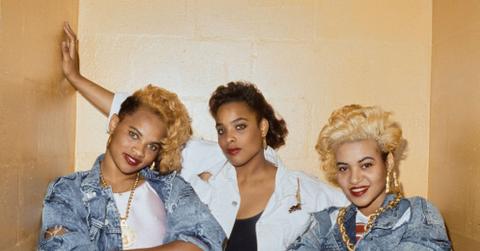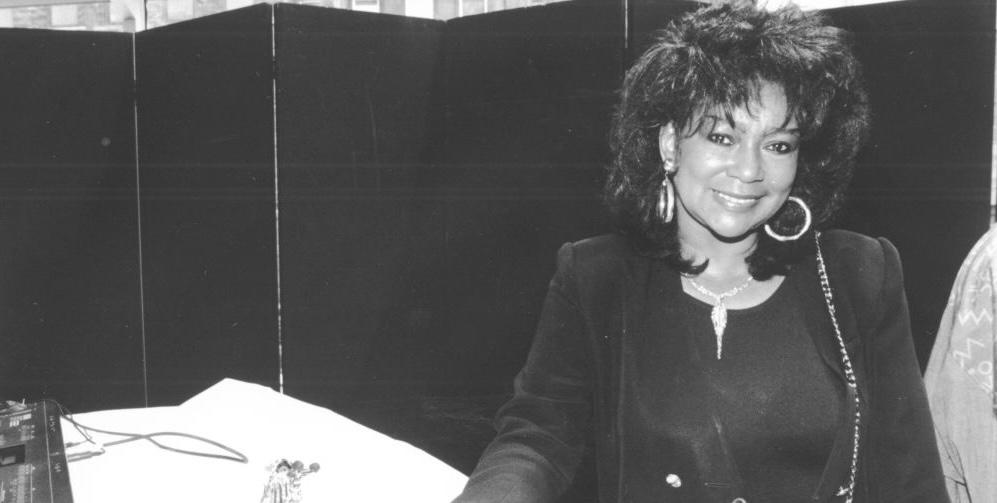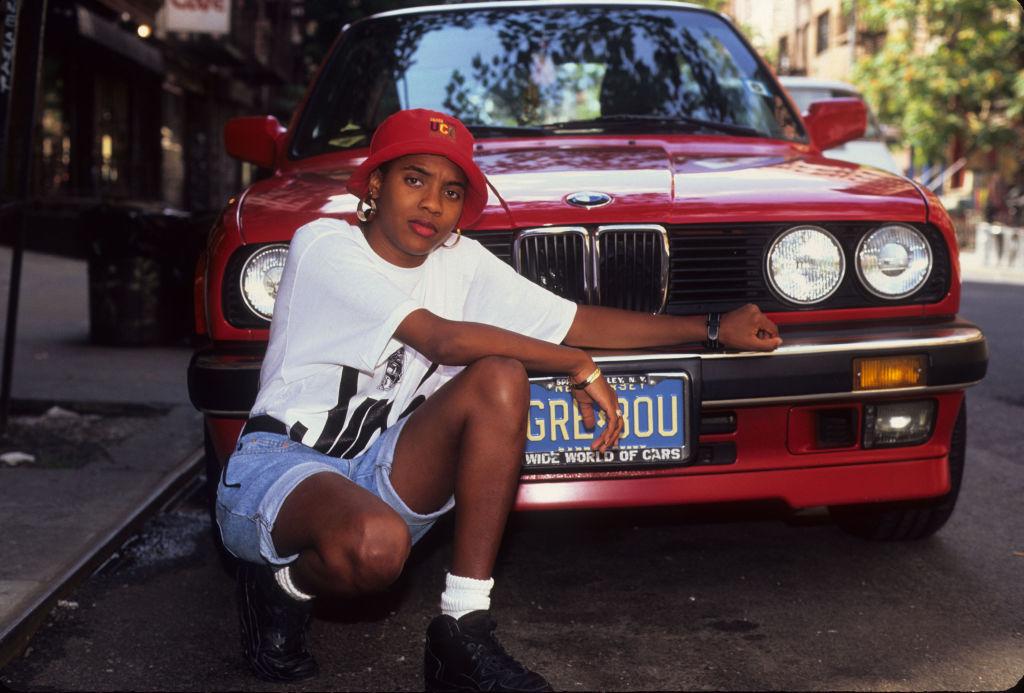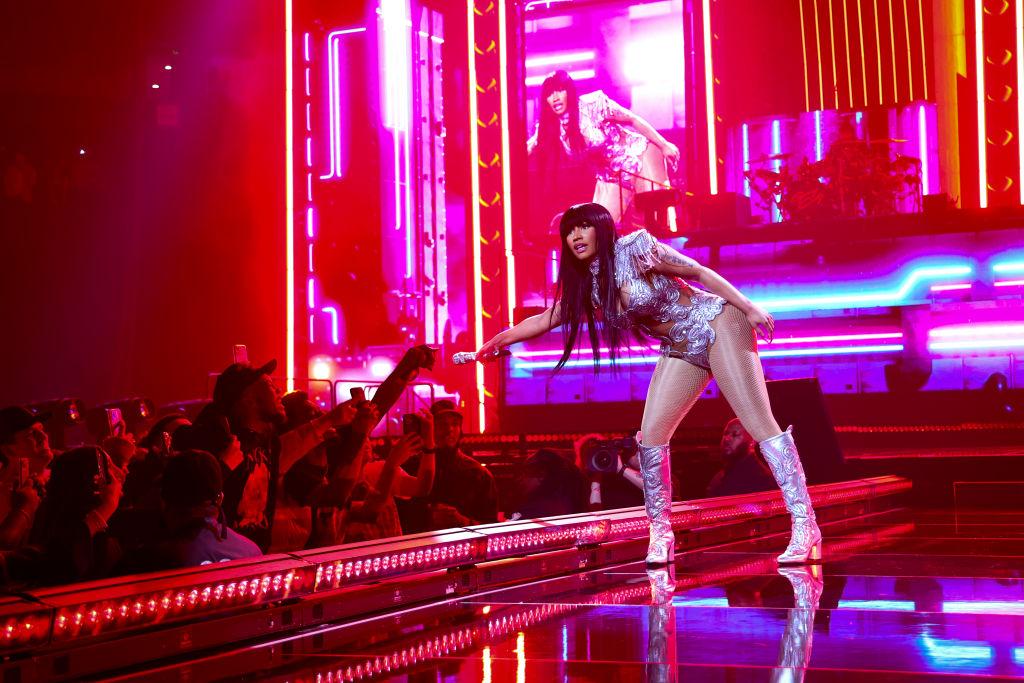
Sheroes of the Cypher: Exploring the Remarkable History of Black Women in Hip-Hop
The history of Black women in hip-hop has contributed to the impact on the genre. Here are some Black women who have left their mark.
By S.Y.May 29 2024, Published 12:46 a.m. ET
Every genre in music has specific eras that have defined it, and hip-hop is no different. The genre in and of itself has always been rife with history and legacy. Along the way, some iconic female MCs have made a significant impact on the culture.
Below, we'll break down the history of women in hip-hop and their impact on the music industry at large.
The legacy of Black women in hip-hop all started in the 70s.

Black and white photo of Sylvia Robinson
In the early 1970s, hip-hop found its footing in the pulsating heartbeat of South Bronx, which served as a hub where Black women could find their footing in the growing industry.
Prominent pioneers like Harlem native Sylvia Robinson, regarded as the “Mother of Hip Hop,” paved the way with her groundbreaking label Sugar Hill Records.
Her protégées, such as Sha Rock of the Funky 4 + 1, became gatekeepers of a new era. Meanwhile, Roxanne Shanté sparked a lyrical revolution with her fierce rhymes, laying the foundation for future generations.
Between the 1980s-1990s, Black women in hip-hop ushered in the golden era

Rapper MC Lyte (aka Lana Moorer) appears in a portrait taken on August 16, 1991 in New York City.
Hip-hop’s golden era was defined by Black women who were comfortable with spitting rhymes that were bold and controversial.
Rappers like Queen Latifah and the iconic rap trio Salt 'N' Pepa created a blueprint for other rappers to become more imaginative with their storytelling. MC Lyte, the first female rapper to release a solo album with her legendary acclaimed Lyte As A Rock, quickly became a pioneer.
The late 90s also saw synergy between hip-hop and R&B. Lauryn Hill’s iconic solo debut album, The Miseducation of Lauryn Hill, set the tone for the fusion of hip-hop and R&B during the late 1990s.
The new millennium birthed a new era Black women in hip-hop.

Nicki Minaj performs during the opening night of her Pink Friday 2 World Tour at Oakland Arena in Oakland, California.
In the early 2000s, Black female rappers continued to push the boundaries and reject the status quo. In the early 2000s, artists like Lil’ Kim, Rah Digga, Eve, Foxy Brown, and Trina redefined audacious lyricism. Their punch lines and lyricism became the signature sound of that era.
The tail end of this era saw Nicki Minaj emerge as a force to be reckoned with. Her feature on Ye’s “Monster” was a culture-shifting moment that created a lot of traction and propelled her to the forefront as a leading rapper for the next decade.
She remains one of the most influential rappers of her generation and has managed to acquire financial success and critical acclaim for her artistry and aura. Her career has been defined by an understanding of her craft and the ability to repeatedly reinvent herself in a way that keeps the audience engaged.
In the present, Black women in hip-hop are using streaming platforms to reach wide audiences.

Doja Cat performs onstage at the MTV Video Music Awards held at Prudential Center.
The impact of social media and streaming platforms has helped to strengthen the accessibility and connection that celebrities have with fans.
Cardi B’s Invasion of Privacy, Megan Thee Stallion’s Tina Snow, and Doja Cat’s Planet Her represent significant milestones that have been made in the current era of rap music. In present-day hip-hop, female rappers are commanding more attention and recognition for their diverse talents, artistic innovation, and contributions to the genre.
Rappers like Ice Spice, Flo Milli, JT, BIA, Doechii, and Saweetie have also emerged as dominant forces in music, embodying creative confidence and charisma.
By taking advantage of platforms like TikTok and Instagram, contemporary rappers can now interact with fans in a way that they couldn't in the golden era, which has further evolved the art form.
The author’s content and opinions have not been pre-reviewed, approved or endorsed by Discover.

